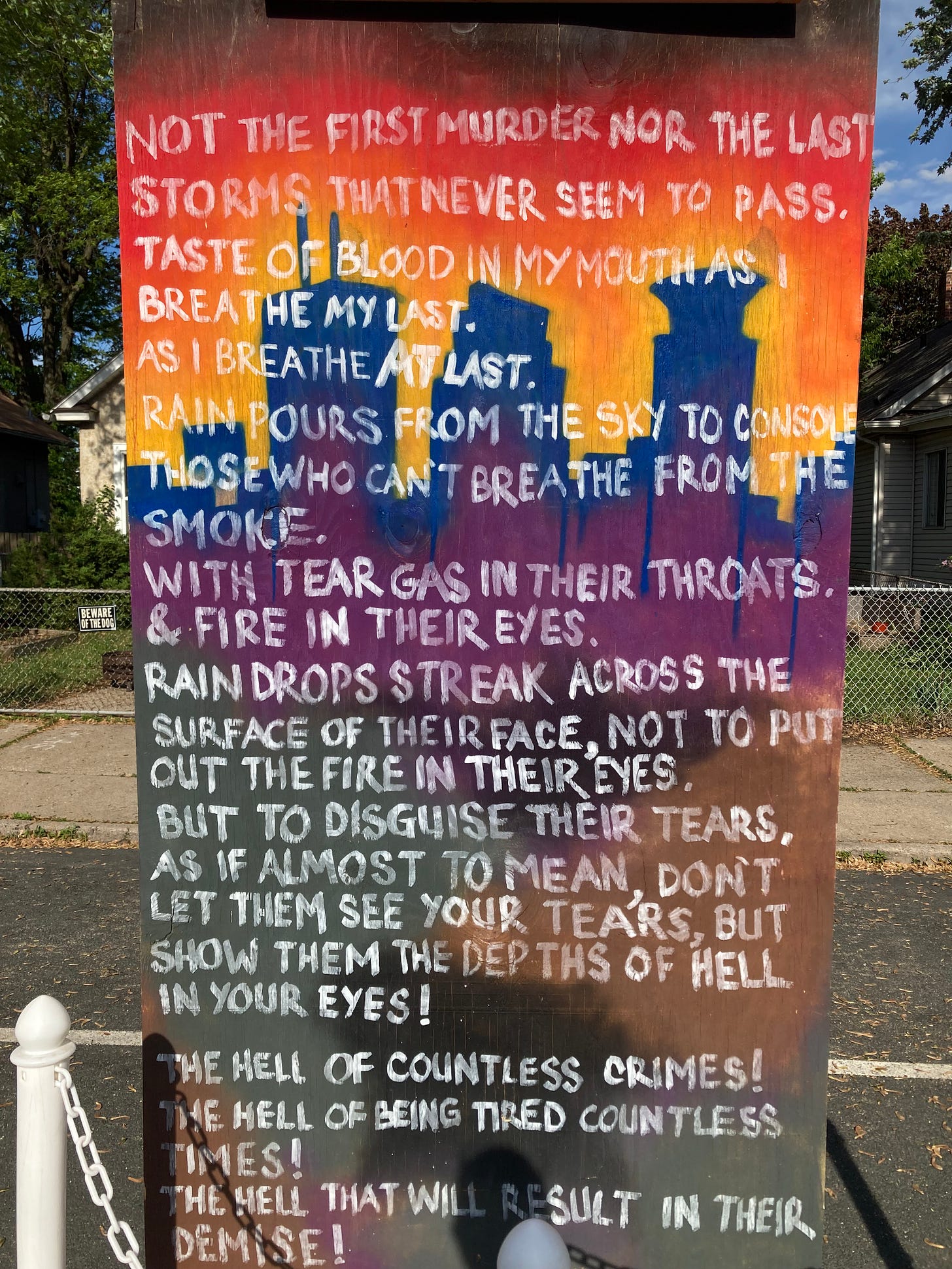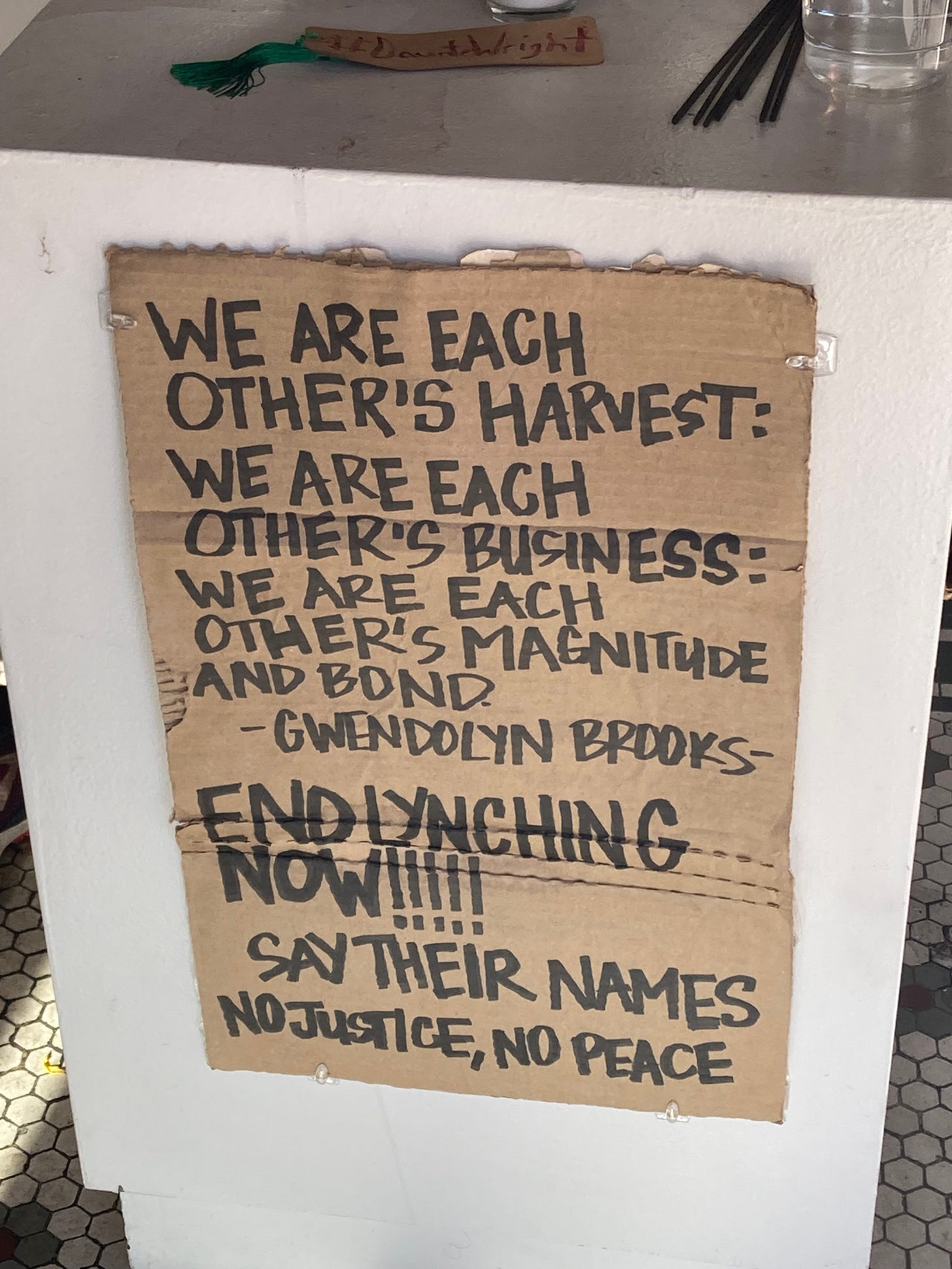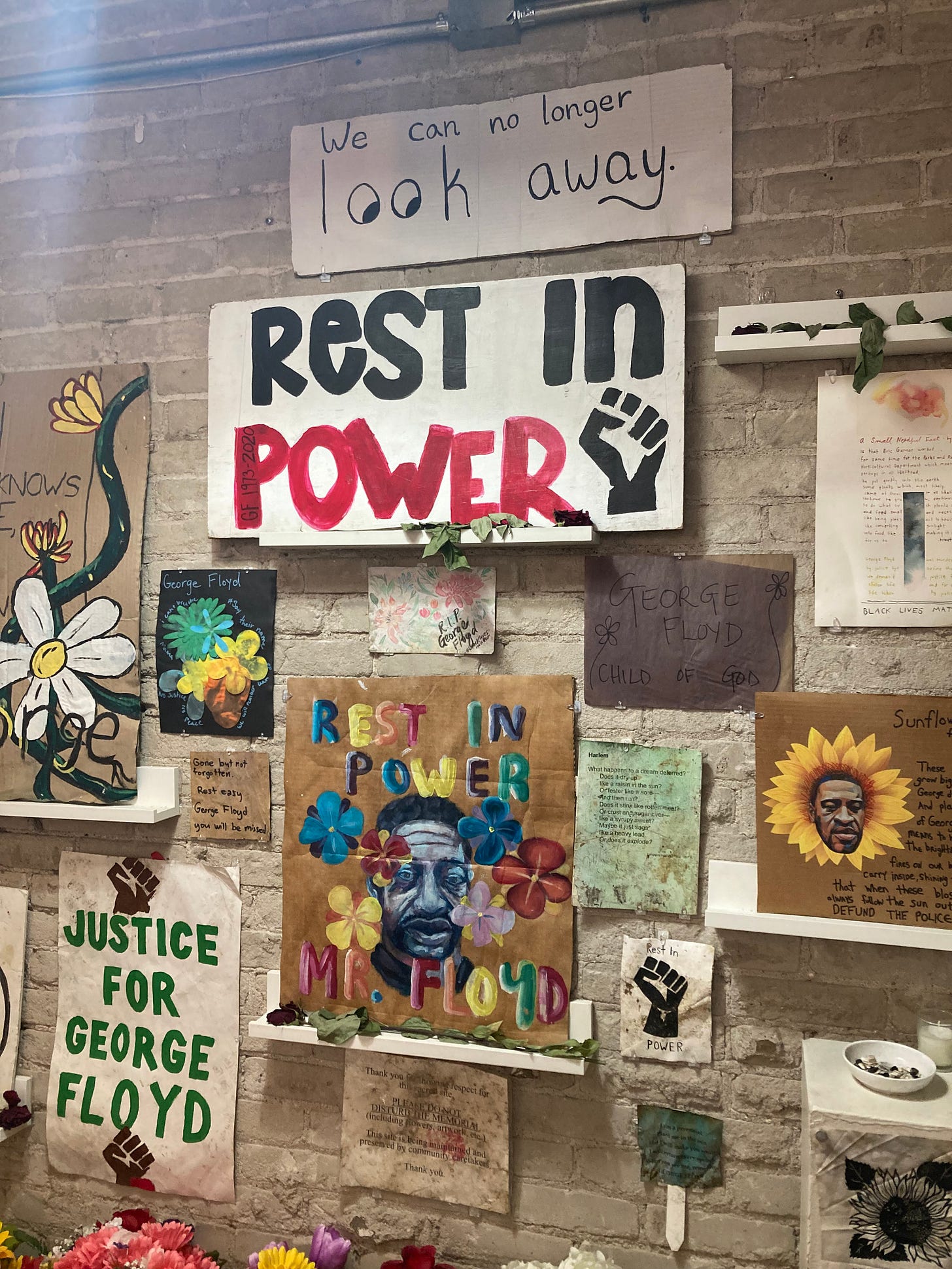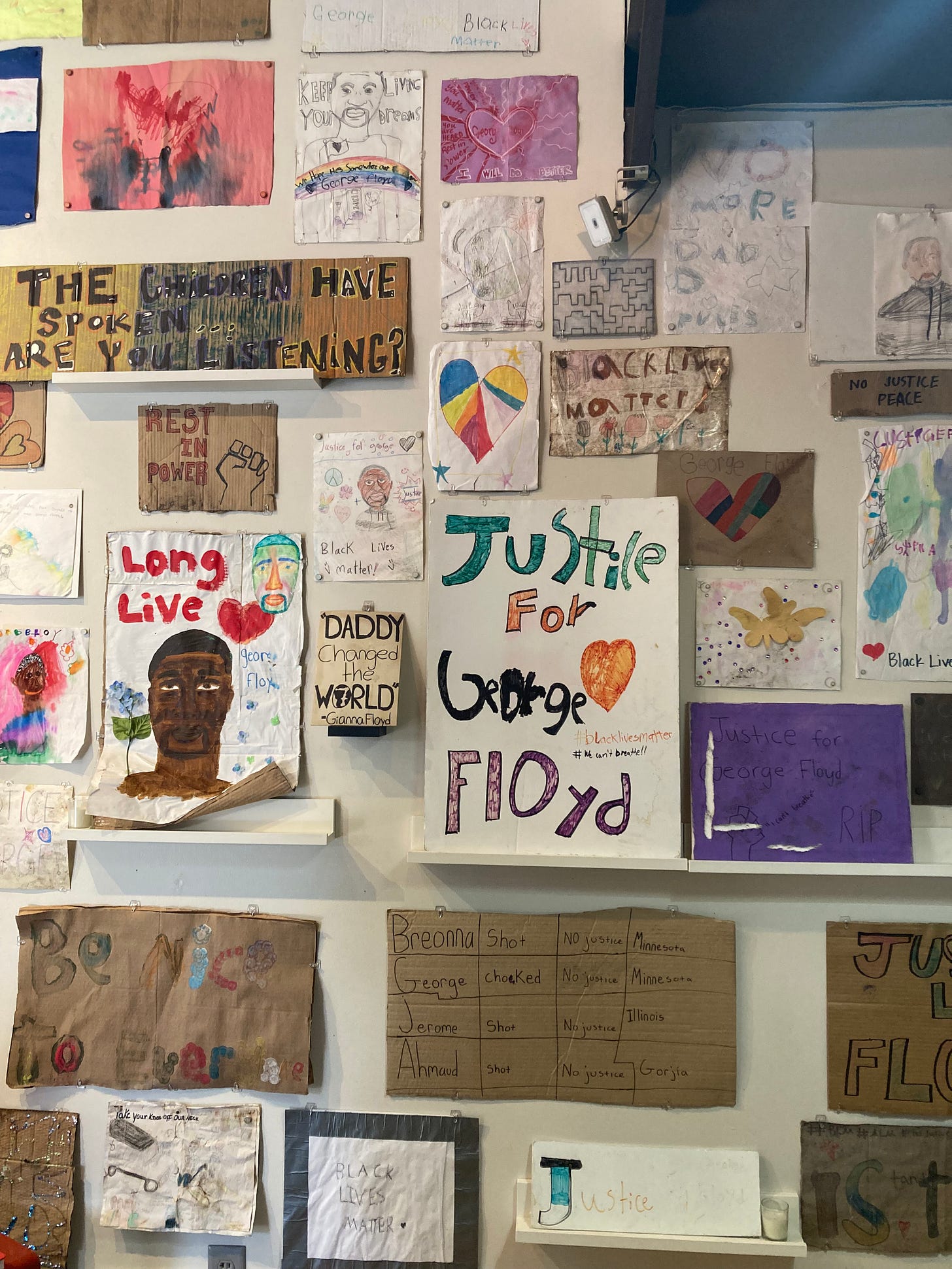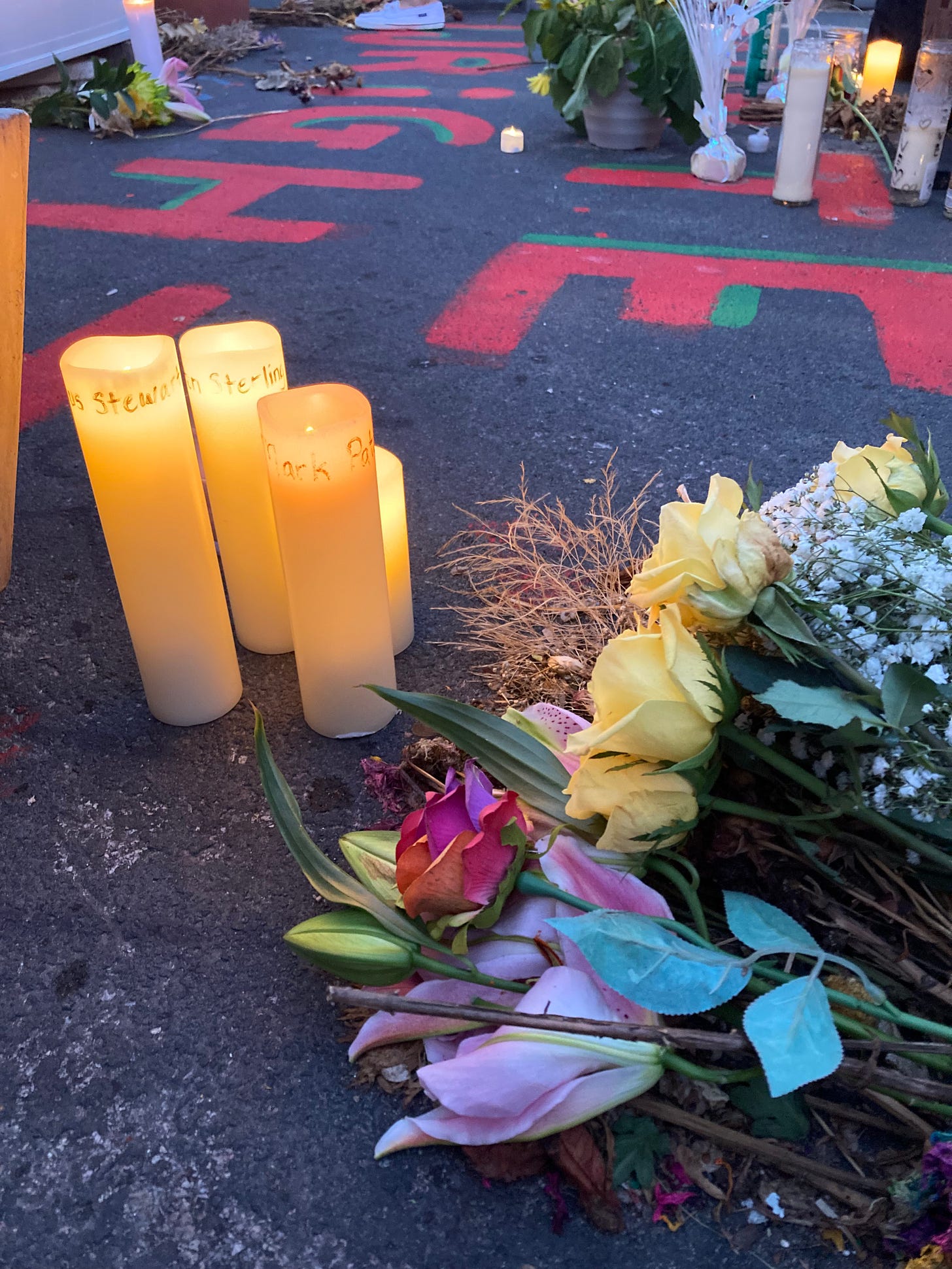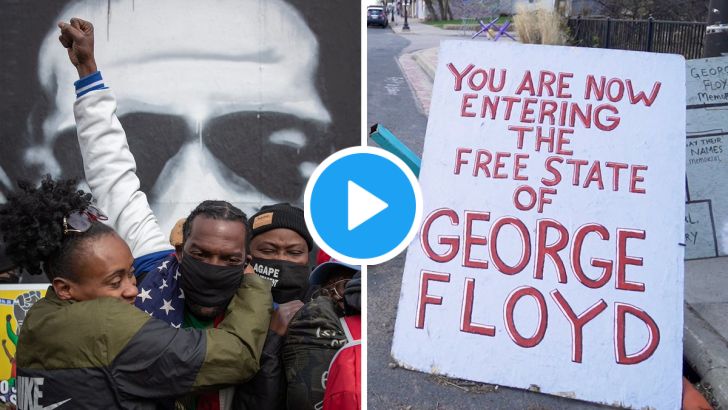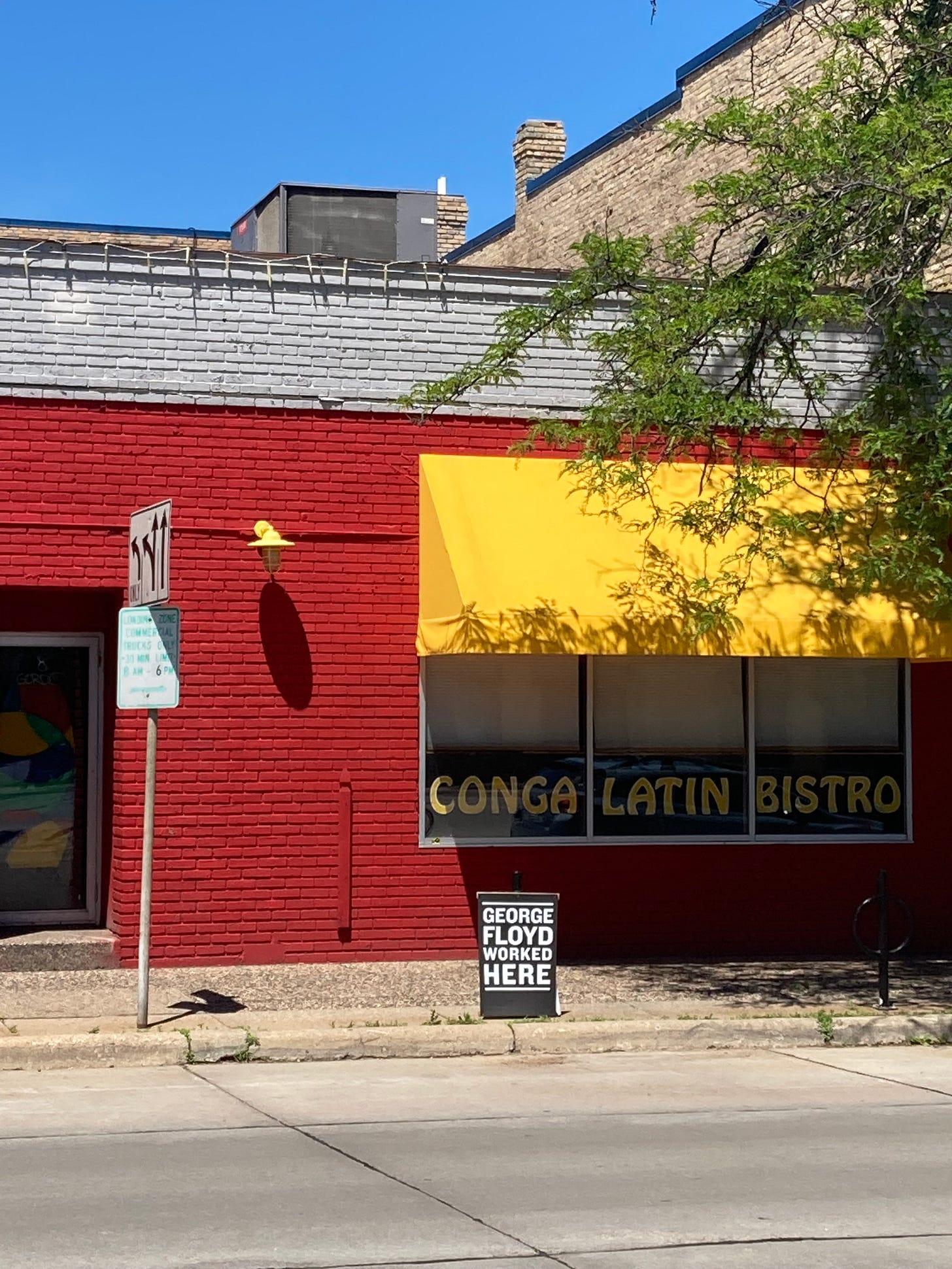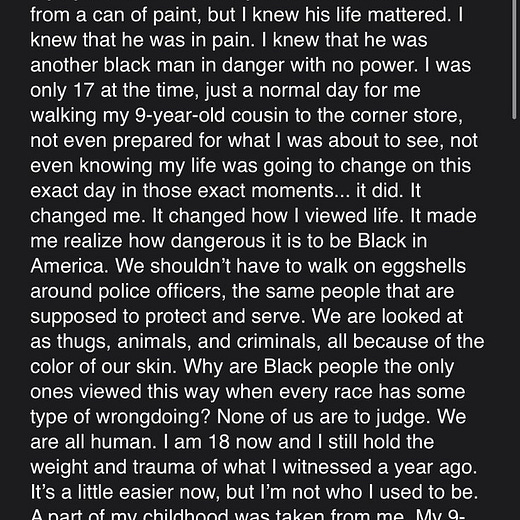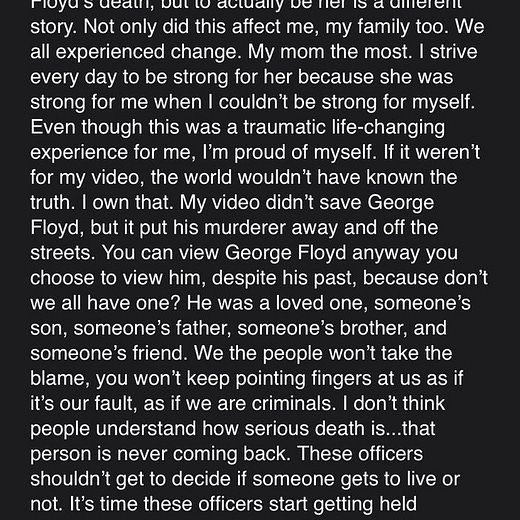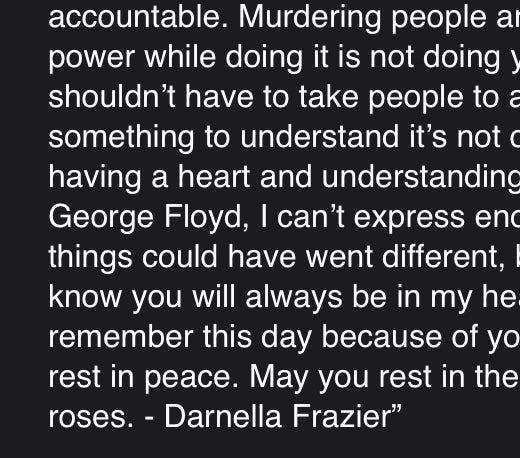“We are each other’s business”
A year ago this week, we learned the news of George Floyd’s death at the hands of police.
Barely three months into the COVID-19 pandemic, communities around the world reacted to the video of Derek Chauvin’s murder of Floyd in Minneapolis. On Tuesday, the community at George Floyd Square gathered in celebration of his life, continuing to fight for their 24 demands and working to imagine a better world.
Memorialize the Movement is a project partnered with Save the Boards Minneapolis that protects the protest art created during the uprisings. “Not the first murder nor the last / storms that never seem to pass. / taste of blood in my mouth as I breathe my last. / As I breathe at last. / rain pours from the sky to console those who can’t breathe from the smoke. / with tear gas in their throats. / &fire in their eyes. / but to disguise their tears, as if almost to mean, don’t let them see your tears, but show them the depths of hell in your eyes! / the hell of countless crimes! / the hell of being tired countless times! / the hell that will result in their demise!”
Inside the Chicago Avenue Fire Arts Center at the George Floyd Global Memorial, posters from the memorial are arranged in a collage of protest art. “We are each other’s harvest: we are each other’s business: we are each other’s magnitude and bond. -Gwendolyn Brooks- End lynching now!!!!! Say their names. No justice, no peace.” These words are from a poem by Gwendolyn Brooks, the first Black author to win the Pulitzer Prize.
Colorful text reads “we can no longer look away” and “rest in power Mr. Floyd” and “justice for George Floyd.”
”The children have spoken, are you listening?” and “‘Daddy changed the world!’-Gianna Floyd.”
After performances by Sounds of Blackness and the rapper Common, candles labeled with the names of victims of police brutality were given out to be placed across the square.
Watch: Insider News on “why residents are still occupying ‘George Floyd Square’ a year later”
Artist Witt Siasoco posted this sign in front of Conga Latin Bistro in Northeast Minneapolis. “George Floyd worked here.”
Read: Darnella Frazer’s powerful statement a year after filming Floyd’s death:
Minnesota Attorney General Keith Ellison released a statement calling for meaningful change:
“African American communities have been gaslit by people in authority for 100 years: they have been repeatedly told that state-sanctioned violence in their communities is their fault and that they are the criminals, not the ones committing the crimes against them. But this time, the witnesses to George Floyd’s death and everyone in the world who watched their videos refused to be gaslit. They believed their eyes.”
Why Minneapolis?
Legacy media may not be able to tell the story of why Minneapolis became the epicenter of the largest protest movement. Learn about the history of Black media makers and the power of mobile journalism in this talk by award-winning journalism scholar and pioneer Dr. Allisa V. Richardson, the author of “Bearing Witness While Black: African Americans, Smartphones and the New Protest Journalism.”
Read about the Minneapolis Police Department’s history with labor movements in MPD150’s performance review Enough is Enough!: “At the turn of the century, MPD often used its increasing power on behalf of the Citizens’ Alliance, a far right group of powerful businessmen established in 1903. The Citizens’ Alliance used MPD to harass, infiltrate, and attack labor groups, preventing them from building political power and organizing unions.” The Police Federation of Minneapolis was established in 1916.
In These Times labor reporter Hamilton Nolan provides analysis on AFL-CIO’s public safety report that embraces police unions.
A failure of journalism has been the irresponsible use of police reports, resulting in a pro-police bias. Listen from NPR: How Police Reports Became Bulletproof.
Essential workers at risk
On Wednesday, nine public transit workers in San Jose died in a mass shooting at the Santa Clara Valley Transportation Association.
NPR on why we’re seeing a spike in workplace shootings because of the pandemic.
From Workday: Minnesota lawmakers have the chance to pass paid emergency leave for essential workers in their upcoming special session.
Take care, everyone. We are each other’s harvest.



